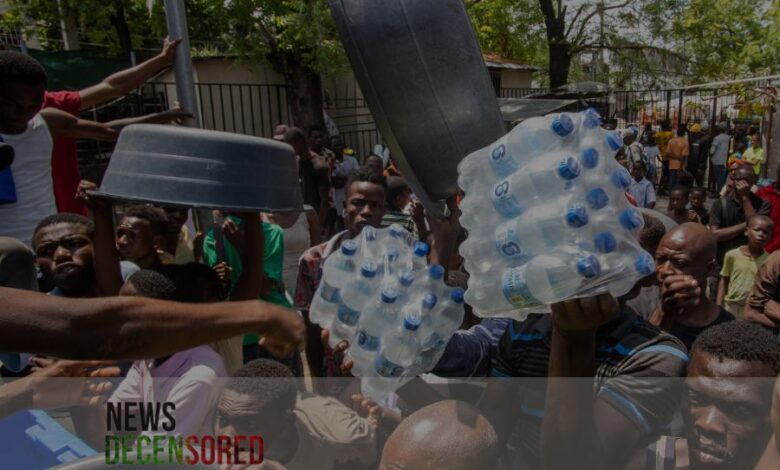Situation in Haiti worsens with now spreading hunger, say the aid workers

Haiti, a nation already grappling with deep-seated poverty, is teetering on the edge of a catastrophic hunger crisis. A potent mix of political paralysis, gang violence, and a crippled supply chain are creating a situation where millions are going hungry, with children bearing the brunt of the suffering.
Port-au-Prince, the Haitian capital, has become an epicenter of despair. Gangs have effectively strangled the city, severing vital access routes and shutting down the port and airport. This blockade has choked off the flow of food and essential supplies, leaving residents with dwindling resources.
“One by one, items disappear for good,” says a missionary working in gang-controlled areas. “There’s no supply chain, so when basic staples like flour and rice run out, they’re gone.”
The consequences of this blockade are dire, particularly for children. UNICEF estimates that over 58,000 children in Port-au-Prince are suffering from severe malnutrition, a life-threatening condition. Hospitals have been ransacked, medical supplies stolen, and reaching these vulnerable children with critical aid has become virtually impossible.
Dr. Ralph Ternier, working near the capital, describes witnessing some of the worst cases of child hunger he’s ever seen. He laments the inability to reach those in Port-au-Prince, where rampant gang violence makes travel perilous and access to healthcare severely restricted.
The crisis isn’t confined to Port-au-Prince. Haiti’s agricultural heartland, the Artibonite Valley, is also facing a humanitarian nightmare. Farmers, fearing banditry, are abandoning their fields, leading to a decline in food production. The World Food Programme (WFP) warns of a “shrinking food production” cycle, further exacerbating the hunger crisis.
Aid organizations are working tirelessly to bridge the gaps, but they face immense challenges. The WFP, despite reaching nearly half a million Haitians with food assistance last month, is rapidly depleting its stockpiles in Port-au-Prince. Without a functioning supply chain, the agency warns it will run out of food within weeks.
Compounding the problem is a critical shortage of donor funding. The UN’s 2024 Humanitarian Response Plan is woefully underfunded, and the WFP itself needs an additional $100 million to maintain its programs.
The international community cannot afford to turn a blind eye to Haiti’s plight. Urgent action is needed on multiple fronts. First, a political solution must be found to break the current deadlock and restore order. Second, international pressure must be applied to dismantle the stranglehold of gang violence and reopen vital supply routes.
Finally, a significant increase in donor funding is necessary to empower aid organizations to reach those most in need. As Jean-Martin Bauer, WFP Country Director, warns, “You’re not going to have Haiti at peace with half of its population not knowing where its next meal is coming from.” Haiti’s future hinges on the ability of the international community to act decisively and address the root causes of this unfolding tragedy.




